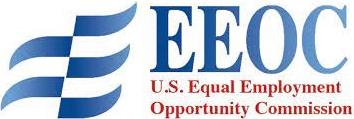 According to a May 28th release by the U.S. Equal Employment Opportunity Commission, (EEOC) employers can mandate COVID vaccination to all employees entering the workplace with certain exemptions. The guidance issued by the EEOC although employers can mandate COVID vaccination, they must provide reasonable accommodation under the Americans with Disabilities Act for those seeking exemptions. Employers may require unvaccinated employees to wear face covering and to observe social distancing and even receive testing for infection with SARS-CoV-2 responsible for COVID.
According to a May 28th release by the U.S. Equal Employment Opportunity Commission, (EEOC) employers can mandate COVID vaccination to all employees entering the workplace with certain exemptions. The guidance issued by the EEOC although employers can mandate COVID vaccination, they must provide reasonable accommodation under the Americans with Disabilities Act for those seeking exemptions. Employers may require unvaccinated employees to wear face covering and to observe social distancing and even receive testing for infection with SARS-CoV-2 responsible for COVID.
Employers may incentivize employees to be vaccinated provided benefits are not regarded as coercive. In the process of arranging for vaccination, care must be exercised to maintain confidentiality regarding the medical information relating to all employees especially if an exemption is requested.
 Employers can require employees to provide proof of vaccination, but vaccination information must be held in confidence and should not be included in the employee personnel file.
Employers can require employees to provide proof of vaccination, but vaccination information must be held in confidence and should not be included in the employee personnel file.
Vaccination is regarded as an exceptionally efficient method of reducing transmission of SARS-CoV-2 within the workplace and it is obviously in the interest of the employer, the employee and the community to establish a high level of immunity in the workforce.
As with any vaccination, immune status will wane over time and within a population of workers, introduction of new presumably non-vaccinated individuals will reduce the level of herd immunity. It is unknown whether booster vaccination will be required at intervals since the response to vaccination that was only initiated in January has yet to be evaluated. Studies conducted in the EU, Israel and the U.S. suggest that durable immunity persists for at least five months following two doses of either of the approved mRNA vaccines.